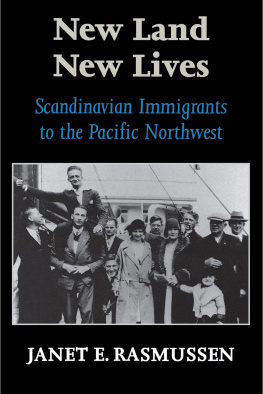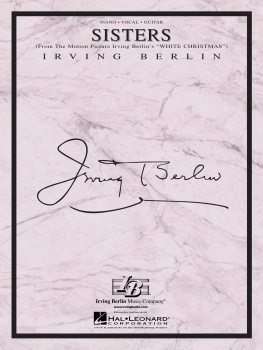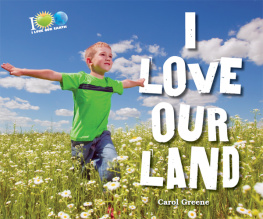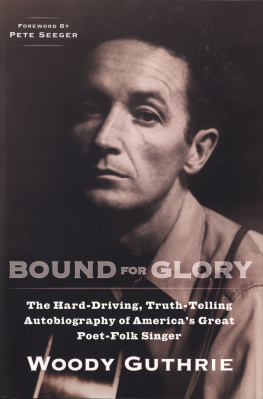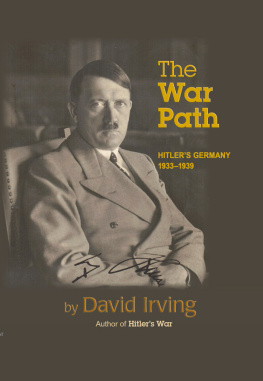THIS
LAND
THAT
I LOVE

Copyright 2013 by John Shaw.
Published in the United States by PublicAffairs, a Member of the Perseus Books Group
All rights reserved.
No part of this book may be reproduced in any manner whatsoever without written permission except in the case of brief quotations embodied in critical articles and reviews. For information, address PublicAffairs, 250 West 57th Street, 15th Floor, New York, NY 10107.
PublicAffairs books are available at special discounts for bulk purchases in the U.S. by corporations, institutions, and other organizations. For more information, please contact the Special Markets Department at the Perseus Books Group, 2300 Chestnut Street, Suite 200, Philadelphia, PA 19103, call (800) 810-4145, ext. 5000, or e-mail .
Permissions acknowledgments appear on pages 273274.
Book design by Linda Mark
Library of Congress Cataloging-in-Publication Data
Shaw, John (John Allen), 1963
This land that I love : Irving Berlin, Woody Guthrie, and the story of two American anthems / John Shaw.First edition.
pages cm
Includes bibliographical references and index.
ISBN 978-1-61039-224-2 (e-book)
1. Patriotic musicUnited StatesHistory and criticism. 2. Popular musicUnited StatesHistory and criticism. 3. Berlin, Irving, 18881989. God bless America. 4. Guthrie, Woody, 19121967. This land is your land. I. Title.
ML3551.5.S53 2013
782.42'15990973dc23
2013022329
First Edition
10 9 8 7 6 5 4 3 2 1
To my parents and grandparents, to my beloved spouse, and to our sons Nat and Denny
See the power of national emblems. Some stars, lilies, leopards, a crescent, a lion, an eagle, or other figure which came into credit God knows how, on an old rag of bunting, blowing in the wind on a fort at the ends of the earth, shall make the blood tingle under the rudest or the most conventional exterior. The people fancy they hate poetry, and they are all poets and mystics!
RALPH WALDO EMERSON, The Poet, Essays: Second Series (1844)
CONTENTS
W OODY GUTHRIE WAS WORRIED he might freeze to death. Twenty-seven-years old and almost completely unknown, he was hitchhiking to New York and had been stuck outside Harrisburg, Pennsylvania, standing for hours in a snowstorm, waiting for someone, anyone, to pick him up.
He had left behind his wife Mary and their three young children in Pampa, Texas, Marys hometown, where she and Woody had married six years before, a few years after he had moved there as a teenager. They had recently returned after a few years in Los Angeles. Woody had hustled in the music business and had had some success, hosting his own radio show, selling mimeographed songbooks, barnstorming around Southern California. He had already written many of the songs that would make him famous, though he hadnt yet released any records. He had performed for film royalty at left-wing fund-raisers. He had played on picket lines, at rallies, and in migrant worker camps. He had advised John Steinbeck on the music for the film of The Grapes of Wrath, Steinbecks novel about the Dust Bowl refugees, the OkiesWoodys people. But when Germany invaded Poland, his left-wing politics lost him his radio gig and things generally fizzled.
The plan now was to do what they had done in Los Angeles, minus the fizzle. Woody would send for Mary and the kids after he established himself in New York.
The actor Will Geer, who thirty years later would play Grandpa Walton on television, had been Woodys California barnstorming partner. He was also Woodys connection to Steinbeck, having played Lennie in the Broadway adaptation of Steinbecks Of Mice and Men. Now it was February 1940, and Geer had returned to Broadway to star in Tobacco Road, based on Erskine Caldwells novel. He had invited Woody to stay with him and offered to introduce him to the leftist artists scene; Geer was confident that Woody would make a splash. Working as a soda jerk with unpromising prospects in Pampa, and not particularly happy in his marriage, Woody jumped at the chance.
But he had to get there first. Money that his brother had given him in exchange for a broken-down 1929 Chevy had bought a bus ticket to Pittsburgh. When the ticket ran out, he stuck out his thumb, something he had done plenty of times throughout the 30s. Hitching and train-hopping across the Southwest with his guitar, he had been one of the army of the unemployed, singing for his supper when he could, working when he found work, sleeping in boxcars and under the stars, getting in scrapes with the police, going to sleep hungry many a night. Now, outside Harrisburg, freezing for hours in the snow and wind, waiting for a ride, he feared that his race was almost run. Having given up all hopes of ever seeing any human beings alive on this planet any more, as he would write later, he knew that he would have been far from the first to succumb to the exposure and starvation that the Depression had wreaked across the country. More than a decade after the Stock Market Crash of 1929, the Depression had scarcely loosened its grip. Unemployment stood at 15 percentwell below its 1933 peak of 25 percent, but still disastrous by historical standards.
Throughout the trip, jukeboxes and radios had blared God Bless America, a hit for network radio star Kate Smith. With its gentle, pastoral lyric and gracefully rising and falling melody set to a stirring march rhythm, Woody hated it. He despised the Hit Paradehe called it sissy musicbut it was rare for any particular song to irritate him so much. A Bing Crosby hit had been the most recent to irk him. Wrap your troubles in dreams / whistle and dream your cares away, Crosby had crooned. Woody couldnt stand such vaporous wishful-ness. He was freezing, broke, and hungry; he had endured the Dust Bowl, homelessness, and jail time for vagrancy; he had seen police violence, bloody labor disputes, and starvation stalking the California migrant camps. A songbird bellowing land that I love and rhapsodizing about her home, sweet home provoked him.
Some people say that it was when he was freezing on the side of the road that he started thinking about writing a rebuttal, a song that would give vent to his leftist politics. As with many of his songs, he would borrow most of the tune from the Carter Family, his biggest musical influence. The Southwestern landscape and his years of wandering would figure prominently. The song would talk about the Dust Bowl and the Depression. Even a job he had worked in Pampa as a sign painter would make it in. It wasnt yet the song we know todaya jaunty sarcasm popped from the first draftbut the majority of the lyrics that would become so famous were already there when he sat to write it down later in New York. Including the first lines.
This land is your land, this land is my land
From California, to the New York Island...

IRVING BERLIN HAD BEEN a songwriting juggernaut for longer than Guthrie had been alive. He had written his first million-seller in 1911, the year before Guthries birth. But what Guthrie might not have knownand if he had, he probably wouldnt have caredwas that the author and composer of God Bless America had lived through deprivation comparable to his own.
Next page

